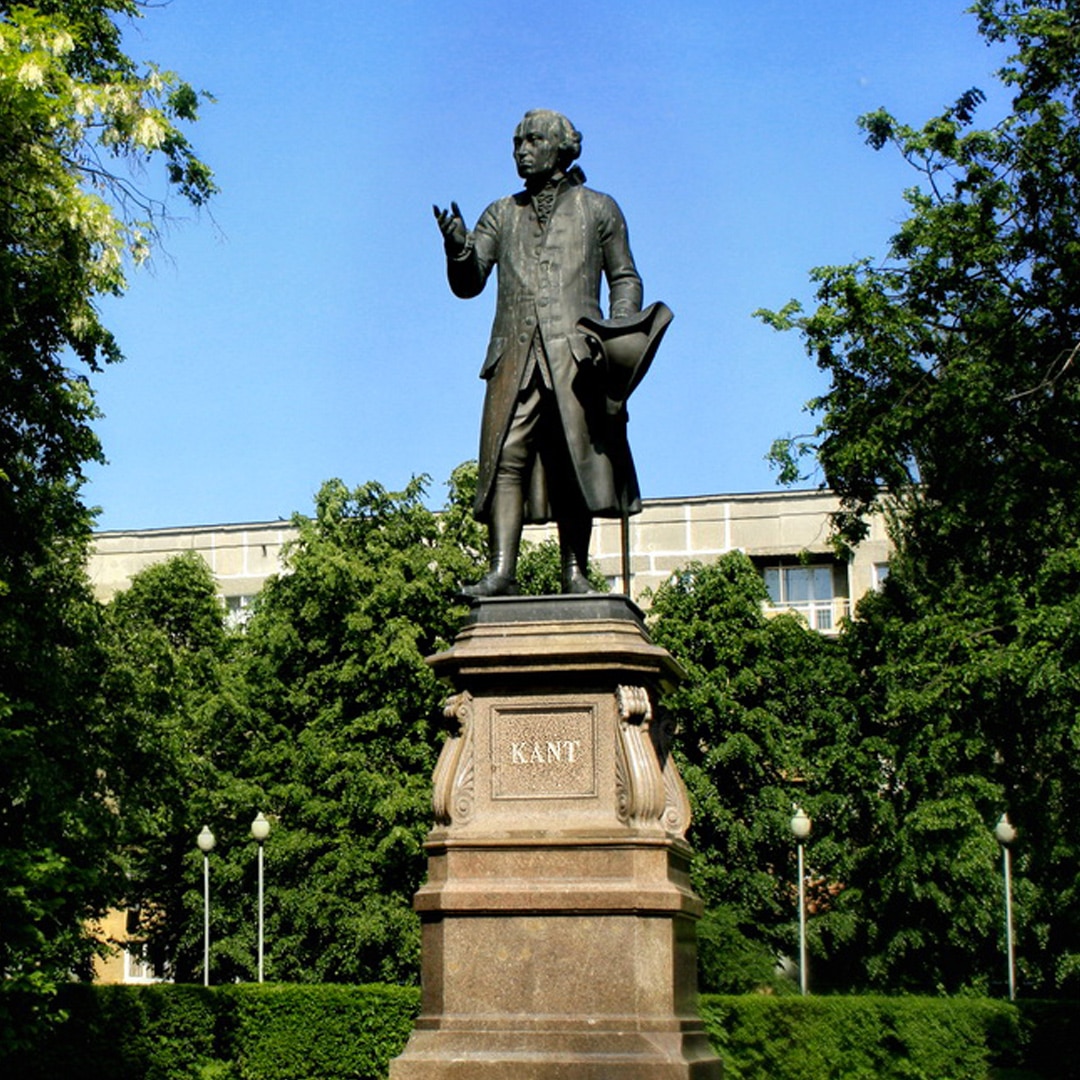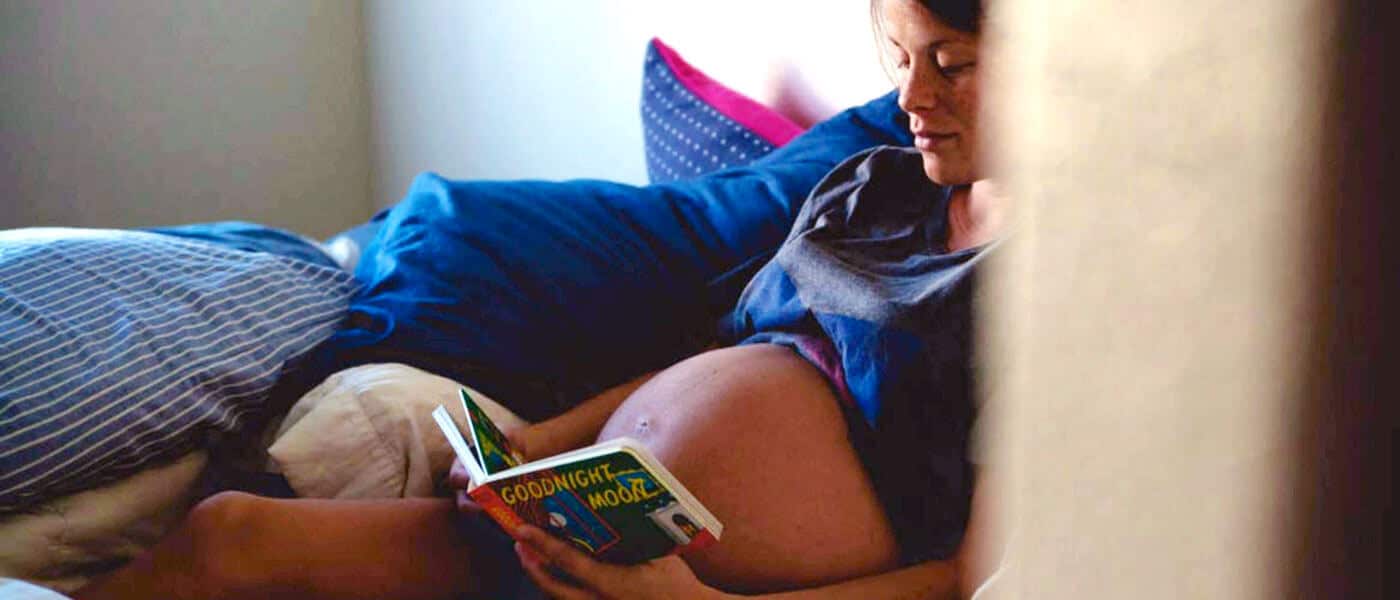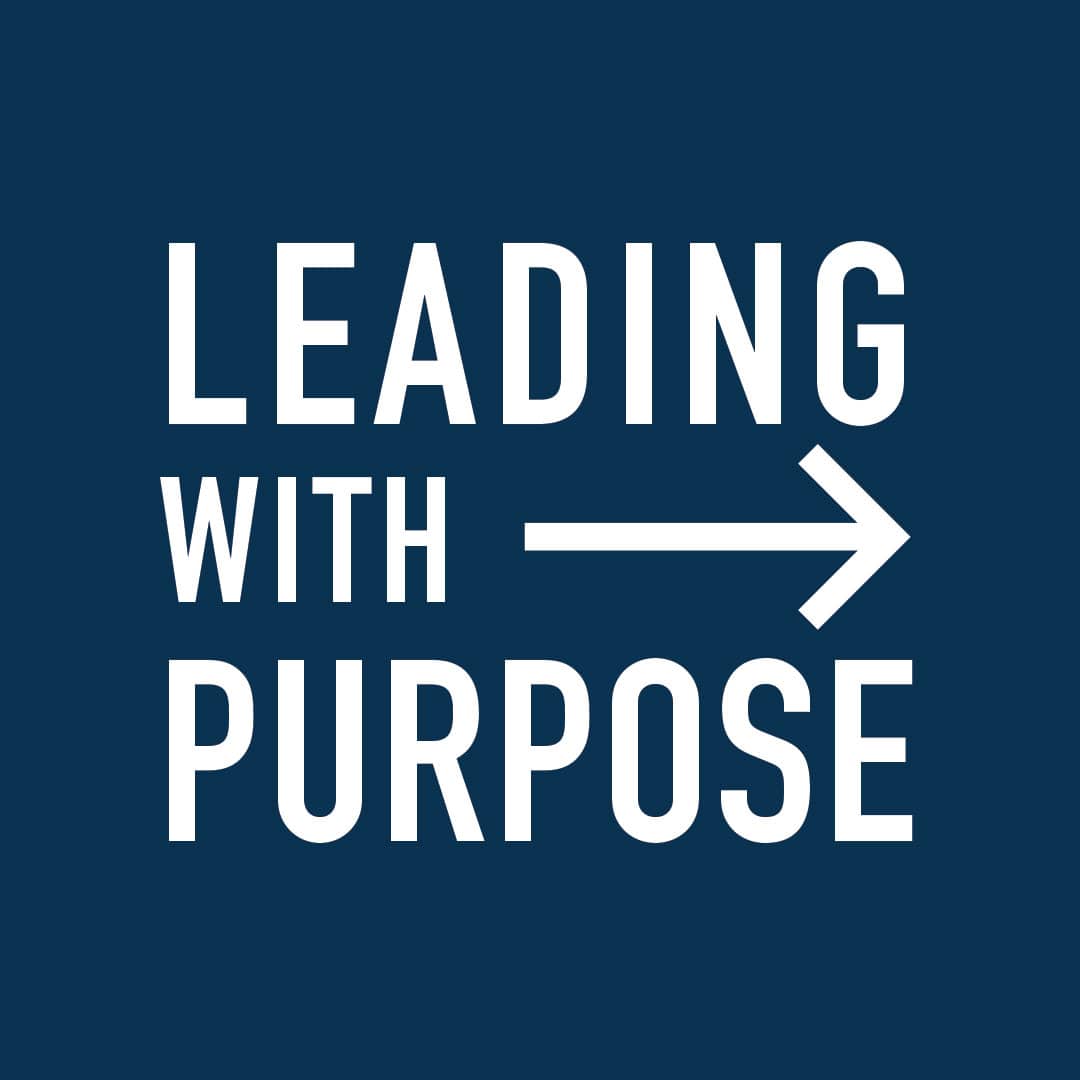Meet Aubrey Blanche: Shaping the future of responsible leadership
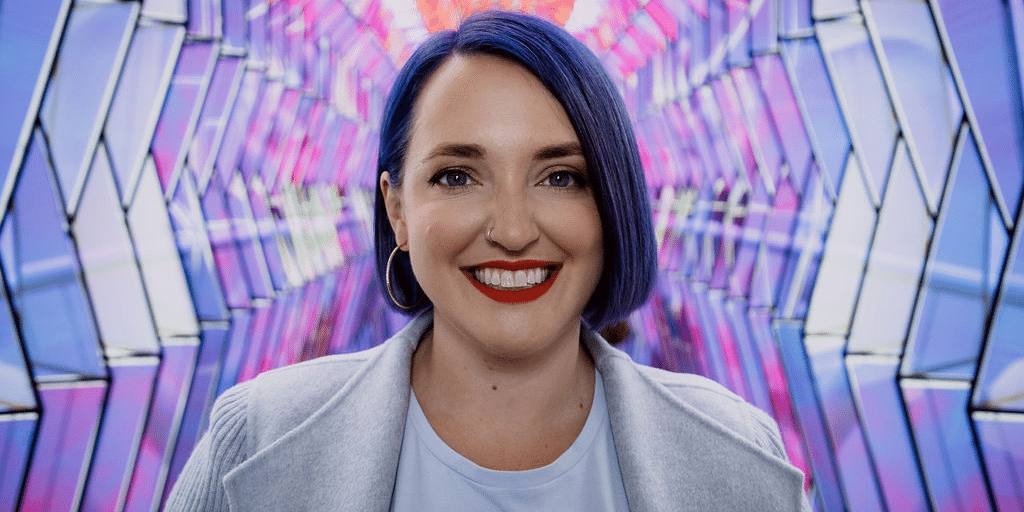
Meet Aubrey Blanche: Shaping the future of responsible leadership
Opinion + AnalysisBusiness + LeadershipScience + Technology
BY The Ethics Centre 4 NOV 2025
We’re thrilled to introduce Aubrey Blanche, our new Director of Ethical Advisory & Strategic Partnerships, who will lead our engagements with organisational partners looking to operate with the highest standards of ethical governance and leadership.
Aubrey is a responsible governance executive with 15 years of impact. An expert in issues of workplace fairness and the ethics of artificial intelligence, her experience spans HR, ESG, communications, and go-to-market strategy. She seeks to question and reimagine the systems that surround us to ensure that all can build a better world. A regular speaker and writer on issues of ethical business, finance, and technology, she has appeared on stages and in media outlets all over the world.
To better understand the work she’ll be doing with The Ethics Centre, we sat down with Aubrey to discuss her views on AI, corporate responsibility, and sustainability.
We’ve seen the proliferation of AI impact the way in which we work. What does responsible AI use look like to you – for both individuals and organisations?
I think that the first step to responsibility in AI is questioning whether we use it at all! While I believe it is and will be a transformative technology, there are major downsides I don’t think we talk about enough. We know that it’s not quite as effective as many people running frontier AI labs aim to make us believe, and it uses an incredible amount of natural resources for what can sometimes be mediocre returns.
Next, I think that to really achieve responsibility we need partnerships between the public and private sector. I think that we need to ensure that we’re applying existing regulation to this technology, whether that’s copyright law in the case of training, consumer protection in the case of chatbots interacting with children, or criminal prosecution regarding deepfake pornography. We also need business leaders to take ethics seriously, and to build safeguards into every stage from design to deployment. We need enterprises to refuse to buy from vendors that can’t show their investments in ensuring their products are safe.
And last, we need civil society to actively participate in incentivising those actors to behave in ways that are of benefit to all of society (not just shareholders or wealthy donors). That means voting for politicians that support policies that support collective wellbeing, boycotting companies complicit in harms, and having conversations within their communities about how these technologies can be used safely.
In a time where public trust is low in businesses, how can they operate fairly and responsibly?
I think the best way that businesses can build responsibility is to be more specific. I think people are tired of hearing “We’re committed to…”. There’s just been too much greenwashing, too much ethics washing, and too many “commitments” to diversity that haven’t been backed up by real investment or progress. The way through that is to define the specific objectives you have in relation to responsibility topics, publish your specific goals, and regularly report on your progress – even if it’s modest.
And most importantly, do this even when trust is low. In a time of disillusionment, you’ll need to have the moral courage to do the right thing even when there is less short-term “credit” for it.
How can we incentivise corporations to take responsible action on environmental issues?
I think that regulation can be a powerful motivator. I’m really excited that the Australian Accounting Standards Board is bringing new requirements into force that, at least for large companies, will force them to proactively manage climate risks and their impacts. While I don’t think it’s the whole answer, a regulatory “push” can be what’s needed for executives to see that actively thinking about climate in the context of their operations can be broadly beneficial to operations.
What are you most excited about sinking your teeth into at The Ethics Centre?
There’s so much to be excited about! But something that I’ve found wildly inspiring is working with our Young Ambassadors – early career professionals in banking and financial services who are working with us to develop their ethical leadership skills. While I have enjoyed working with our members – and have spent the last 15 years working with leaders in various areas of corporate responsibility – there nothing quite like the optimism you get when learning from people who care so much and who show us what future is possible.
Lastly – the big one, what does ethics mean to you?
A former boss of mine once told me that leadership is not about making the right choice when you have one: it’s about making the best choice you can when you have terrible ones and living with that choice. I think in many cases that’s what ethics is. It gives us a framework not to do the right thing when the answer is clear, but to align ourselves as closely as we can with our values and the greater good when our options are messy, complicated, or confusing.
Personally, I’ve spent a deep amount of time thinking about my values, and if I were forced to distill them down to two, I would wholeheartedly choose justice and compassion. I have found that when I consider choices through those frames, I both feel more like myself and like I’ve made choices that are a net good in the world. And I’ve been lucky enough to spend my career in roles where I got to live those values – that’s a privilege I don’t take for granted, and one of the reasons I’m so thrilled to be in this new role with The Ethics Centre.

BY The Ethics Centre
The Ethics Centre is a not-for-profit organisation developing innovative programs, services and experiences, designed to bring ethics to the centre of professional and personal life.
Ethics in your inbox.
Get the latest inspiration, intelligence, events & more.
By signing up you agree to our privacy policy
You might be interested in…
Opinion + Analysis
Business + Leadership
The 6 ways corporate values fail
Opinion + Analysis
Business + Leadership
Money talks: The case for wage transparency
Opinion + Analysis
Business + Leadership
Who are corporations willing to sacrifice in order to retain their reputation?
Opinion + Analysis
Relationships, Science + Technology
Big tech’s Trojan Horse to win your trust
Ask an ethicist: How much should politics influence my dating decisions?

Ask an ethicist: How much should politics influence my dating decisions?
Opinion + AnalysisRelationships
BY Daniel Finlay 3 NOV 2025
I’ve noticed on dating apps now that many people are displaying their political views on their profile. Is this something I should take into account when talking to someone? How picky should I be about politics when it comes to dating?
Dating is hard even under the best circumstances. Finding the balance between bearing your soul and maintaining a semblance of mysterious allure already feels like a circus feat – before we add in the complexity of having several of these conversations at once on our phones with people we’ve never met before.
If you do manage to wade through that surface mire of app dating, you’ll still be left with some of the harder decisions. A common focus is how we present ourselves. And that’s important – we understandably want to feel like we’re showing an accurate snippet of our identity.
But something to consider is the way that we often consciously or unconsciously judge, categorise, make assumptions about or dismiss people based on small aspects of their presentations of themselves.
Political ideologies, as indicated on dating profiles, usually reflect at least some of our deeply held beliefs. It’s tempting, then, at least for those of us who feel strongly, to use these little markers as a litmus test for our attention. In the age of online dating, we don’t want to waste our time vaguely flirting with someone who actually hates everything we stand for.
But…
Some open-mindedness, perspective-taking and empathy go a long way to breaking down the social barriers that encourage us into echo chambers.
I noticed this firsthand recently when talking to my friends about dating. I told them I had changed my profile to more explicitly reflect some of my political values. We mostly agreed that while it might drive some people away, it was likely to be people I’d be uninterested in regardless.
Then I told them that I often find myself having an adverse reaction to profiles that indicate someone is “Apolitical” or “Not Political” because I see this as apathetic and conflicting with my own strongly held beliefs. Instead of agreeing, they responded to this with variations of “But I’m not political!”.
This didn’t garner the response that I expected because I didn’t realise the way that my close friends thought about and categorised themselves. It turns out they too identified with those labels, not because they don’t have any political opinions, but because they don’t regard them as political. I hadn’t ever asked for their self-reflection before, and so I assumed that I knew how they thought about themselves.
Reframing
For lots of people, “politics” feels far away and unreachable: in rooms with suits, on tv or across the world, seats and benches in inaccessible buildings, smiles and virtue signals with little positive tangible effect.
But this doesn’t mean that someone who actively engages in the broader aspects of politics doesn’t have anything in common with the self-described “apolitical”. Neither does it mean that people on opposing sides of the spectrum have nothing in common.
Recognising this takes reflection on our own ability to remain open-minded, intellectually charitable, and curious.
We have to ask ourselves: is it short-sighted to dismiss people based off a single word? Are we indulging in an echo chamber by looking for people who present exactly like us?
The answer to these questions is both simpler and more complicated than might appear: It’s short-sighted and completely understandable.
As in my situation, you’re incredibly likely to be surrounded by some people who are indifferent to what they consider politics. This doesn’t necessarily make them bad people. What is foundationally important to these relationships are their underlying values and principles. Someone might not be able to identify with a particular movement or phrase or title, but do they care about the same things you do? Do they value the same things you do, for the same reasons?
Granted, dating apps don’t lend themselves to the conversation needed to get to these underlying questions. Organic friendships or even romantic relationships allow more time and space for getting to know what someone values and the principles they stick to in a wider context. Conversely, modern dating often encourages a sense of speed and abundance at odds with this sense of intellectual charity – which brings us to the more complicated answer.
Be discerning, not cynical
As much as we love our friends, we’ll inevitably hold a slightly higher bar for intimate relationships. Those extra levels of intimacy – the extra reliance, co-habitation, psychological, physical and financial vulnerability, etc – all apply a pressure that means a solid foundation of mutual values and principles is even more important for the relationship to be long-lasting (or even to get on the first date).
Political labels are one of many ways we can signal and filter all of these possibilities, and while they’re useful, taking a page out of Aristotle’s book can help prevent us from falling into an echo chamber.
Aristotle spoke of virtues, and specifically about finding the golden mean between two extremes. In the case of dating, we’re trying to avoid the extremes of cynicism and naïvety. Being cynical means a lack of open-mindedness and intellectual charity – it’s assuming the worst of someone based on little evidence, and this can happen a lot when we rely on small markers on profiles to tell us the whole story of a person. We see an identifier that’s usually at odds with our own, and we dismiss them.
Naivety, conversely, is an overabundance of optimism and lack of critical thinking, often resulting in a complete misunderstanding of someone’s character and motivations and leading to disappointment or apparent betrayal.
Being discerning, a comfortable middle ground, is the virtuous person’s dating goal. We want to be able to make quick and accurate judgements based on limited information. In doing so, the aim is to filter out likely harm while remaining open to meeting people a bit different from ourselves.

BY Daniel Finlay
Daniel is a philosopher, writer and editor. He works at The Ethics Centre as Youth Engagement Coordinator, supporting and developing the futures of young Australians through exposure to ethics.
Ethics in your inbox.
Get the latest inspiration, intelligence, events & more.
By signing up you agree to our privacy policy
You might be interested in…
Opinion + Analysis
Relationships
If women won the battle of the sexes, who wins the war?
Opinion + Analysis
Health + Wellbeing, Relationships
Is it ok to visit someone in need during COVID-19?
Opinion + Analysis
Health + Wellbeing, Relationships
How to break up with a friend
Opinion + Analysis
Relationships, Society + Culture
If we’re going to build a better world, we need a better kind of ethics
The ‘good ones’ aren’t always kind

The ‘good ones’ aren’t always kind
Opinion + AnalysisRelationshipsSociety + Culture
BY Isha Desai 27 OCT 2025
I’m sitting on a low brick wall at a party next to my date. Twenty-something boys and girls mill around, drink in hand, most of them in couples. One man clocks the boy sitting next to me, approaching us with a wide grin: “he’s a good one”.
The man is talking to me. Minutes later a girl rushes over, taking my hand in hers with a squeeze: “he’s one of the nice ones”. It would take another four months of dating before I realise that being a ‘good guy’ is very different from being a kind one.
The terms ‘good guy’ or ‘nice guy’ have been in my consciousness for two decades: a blanket seal of approval given to people (typically men) who display surface-level qualities of respect, decency and likeability.
In The Will to Change: Men, Masculinity, and Love, bell hooks characterises this as a mask. The ‘good guy’ mold can distort participation in oppressive patriarchal systems. One of the largest ethical implications of this term is that it paints men as a binary. They are either a ‘good guy’ or they are a ‘bad guy’. It creates cognitive dissonance when a ‘good guy’ is complicit in the exact structures they claim to reject. The implication of this is a lack of accountability, a sense of confusion and feeling attacked when these men are presented with information that misaligns with their internalised and reaffirmed sense of self.
I always wondered, why is simply being ‘good’ heralded as praise for men? As if the expectation is that they are bad, and when they surprise us with respect they jump to a pedestal as “one of the good ones”.
In October 2024, Graham Norton was joined by Saoirse Ronan, Paul Mescal, Eddie Redmayne and Denzel Washington on his panel talk show. When discussing the concept of using a phone as a self-defence tool, Paul Mescal quipped, “Who’s actually going to think about that? If someone attacked me, I’m not going to go – phone.” Mescal humorously reached into his back pocket as the audience burst into laughter. The men added various comments until Saoirse Ronan cut through their voices, “That’s what girls have to think about all the time. Am I right ladies?” The audience quickly changed tone, cheering her for speaking up whilst the men nodded quietly.
This twenty-second exchange went viral. Publications from Vogue, The Guardian and the BBC all praised Ronan’s truthful outspokenness. However, many drew attention to the men on the show, in particular Paul Mescal. An often-characterised soft boi, Paul Mescal is known for his sensitivity, emotional depth and embracing of feminine traits. He later praised that Saoirse Ronan was “spot on” for calling out women’s safety. But it served as an important reminder that the societally termed ‘good bloke’ is not exempt from bad moments.
Australian philosopher Kate Manne shows us the worst consequences of the ‘golden boy’ trope. In Down Girl: The Logic of Misogyny, she introduces the term ‘himpathy’, used to describe excessive sympathy towards male perpetrators of sexual violence. She describes the reluctance to believe women who testify against established ‘golden boys’, citing the 2015 People v Turner case as her primary study. In 2015, Chanel Miller (formerly Emily Doe) accused Standford freshman Brock Turner of five counts of felony sexual assault. In this case, testimony from a female friend that Brock Turner was “caring, sweet and respectful to her” corroborated the Judge’s assessment of Turner’s character.
Manne reveals himpathy’s dangerous ethical implication: “Good guys aren’t rapists. Brock Turner is a good guy. Therefore, Brock Turner is not a rapist”. The case culminated in six months of jail time and three years of probation; however, Turner was released from jail after three months on good behaviour.
In the manosphere, ‘Nice Guy Syndrome’ has also been used to describe people who are nice with the aim of obtaining or maintaining a sexual relationship with another person. In this case, being ‘good’ is currency for an ulterior agenda where the person exhibiting ‘nice guy’ qualities builds a sense of entitlement that they are owed a romantic or sexual relationship. When the other person rejects them, the ‘nice guy’ can become disdainful or irrationally angry because they were not given what they are ‘owed’. Whilst the ‘good guy’ mold and ‘nice guy syndrome’ are inextricably linked, many individuals equate being good with being kind, when they are sometimes two very different things.
When engaging with an average well-intentioned man, the ethical implications are often nuanced. Dr Glenn R. Schiraldi outlines childhood adversity including neglect, abandonment or abuse as root causes of the insecurity that leads to being passive and overly dependent on others/women for approval. This can create the ‘good guy’ who would rather maintain a likeable façade than engage in conflict.
I’ve often sat with friends after hearing stories where a ‘good guy’ didn’t have the emotional maturity to initiate a hard conversation for fear of appearing unlikeable. And we always came back to the same questions. Having good intentions should not be disincentivised, but where does being good fall and being kind succeed? What does it mean to be kind?
The first time the difference between being good and being kind was articulated to me was in The Imperfects Podcast, where psychologist Dr Emily Musgrove framed it as choosing truth versus harmony. When we want to do the ‘good’ thing, we choose the option that will keep the relationship in harmony. However, in the long term, we don’t achieve harmony through continually sacrificing the hard truth over having a harmonious relationship. Sometimes, delivering a hard truth is kinder than maintaining short term harmony.
I was in my early twenties when I learnt that being kind meant you might have to let someone down. I was in my mid-twenties when I realised that a man being ‘good’ to me didn’t mean he was being ‘kind’ to me. This principle applies to everyone but is one that prevails amongst men that care more about having a ‘good guy’ reputation than leading with integrity.
The fizziness of my cider travels straight to my brain as my legs dangle over the concrete pavement. I giggle, laugh and tipsily dance until the early hours of the morning, meeting his friends for the first time. What no one had told me was how he would keep important secrets from me for fear of hurting my feelings, which would only hurt me more. How he would withdraw when he wasn’t happy with me and how I would respond in frustration, confused and demanding answers. How he would carry antiquated views that would never come to full light because after all, he was a good guy.
We need to eliminate the ‘good guy’ trope as a seal of approval. We need to end the binary that people are either good or bad and start operating on the foundation that everyone is a person with the potential to be good and bad in moments. Instead of being ‘nice’, we should strive to be authentic, truthful and kind, even in the moments where it doesn’t make us look good.
The ‘good ones’ aren’t always kind by Isha Desai is the winning essay in our Young Writers’ 2025 Competition (18-30 age category). Find out more about the competition here.

BY Isha Desai
Isha Desai is a writer, researcher and analyst, graduated from the University of Sydney in Politics and International Relations. She was the 2024 Indo Pacific Fellow for Young Australians in International Affairs (YAIA) and currently works in social impact policy at Penguin Random House ANZ.
Ethics in your inbox.
Get the latest inspiration, intelligence, events & more.
By signing up you agree to our privacy policy
You might be interested in…
Opinion + Analysis
Science + Technology, Society + Culture
Where did the wonder go – and can AI help us find it?
Opinion + Analysis
Health + Wellbeing, Relationships
Anzac Day: militarism and masculinity don’t mix well in modern Australia
Opinion + Analysis
Health + Wellbeing, Relationships
Academia’s wicked problem
Opinion + Analysis
Politics + Human Rights, Health + Wellbeing, Society + Culture
I changed my mind about prisons
Love and the machine

When we think about love, we picture something inherently human. We envision a process that’s messy, vulnerable, and deeply rooted in our connection with others, fuelled by an insatiable desire to be understood and cared for. Yet today, love is being reshaped by technology in ways we never imagined before.
With the rise of apps such as Blush, Replika, and Character.AI, people are forming personal relationships with artificial intelligence. For some, this may sound absurd, even dystopian. But for others, it has become a source of comfort and intimacy.
What strikes me is how such behaviour is often treated as a fun novelty or dismissed as a symptom of loneliness, but this outlook can miss the deeper picture.
Many may misunderstand forming attachments with AI as another harmless, emerging trend, sweeping its profound ethical dimensions under the rug. In reality, this phenomenon forces us to rethink what love is and what humans require from relationships to flourish.
It is not difficult to see the appeal. AI companions offer endless patience, unconditional affirmations and availability at any hour, which human relationships struggle to live up to. Additionally, the World Health Organisation has declared loneliness a “global public health concern” with 1 in 6 people affected worldwide. Mark Zuckerberg, the founder of Meta, framed AI therapy and companionship as remedies to our society’s growing modern disconnection. In recent surveys, 25% of young adults also believe that AI partners could potentially replace real-life romantic relationships.
One of the main ethical concerns is the commodification of connection and intimacy. Unlike human love, built from intrinsically valuable interactions, AI relationships are increasingly shaped by what sociologist George Ritzer calls McDonaldization: the pursuit of calculability, predictability, control, and efficiency. These apps are not designed to nurture a user’s social skills as many believe, but to keep consumers emotionally hooked.
Concerns of a dangerous slippery slope arise as intimacy becomes transactional. Chatbot apps often operate on subscription models where users can “unlock” more customisable or sexual features by paying a fee. By monetising upgrades for further affection, companies profit from users’ loneliness and vulnerability. What appears as love is in fact a business scheme that brings profit, ultimately benefiting large corporations instead of their everyday consumers.
In this sense, we notice one of humanity’s most cherished experiences being corporatised into a carefully packaged product.
Beyond commodification lies the insidious risk of emotional dependency and withdrawal from real-life interactions. Findings from OpenAI and the MIT Media Lab revealed that heavy users of ChatGPT, especially those engaging in emotionally intense conversations, tend to experience increased loneliness long-term and fewer offline social relationships. Dr Andrew Rogoyski of the Surrey Institute for People-Centred AI suggested we are “poking around with our basic emotional wiring with no idea of the long-term consequences.”
A Cornell University study also found that usage of voice-based chatbots initially mitigated loneliness. However, these benefits were reduced significantly with high usage rates, which correlated with higher isolation, increased emotional dependency, and reduced in-person engagement. While AI might temporarily cushion feelings of seclusion, a lasting overreliance seems to exacerbate it.
The misunderstanding further deepens as AI relationships are portrayed as private and inconsequential. What’s wrong with someone choosing to find comfort in an AI partner if it harms no one? However, this risks framing love as a personal preference rather than ongoing relational interactions that shape our character and community.
If we refer to the principles of virtue ethics, Aristotle’s idea of eudaimonia (a flourishing, well lived life) relies on developing virtues like empathy, patience, and forgiveness. Human connections promote personal growth, with their inevitable misunderstandings, disappointments, and the need to forgive. A chatbot like Blush has its responses built upon a Large Language Model to mirror inputs and infinitely affirm them. It may always say “the right thing,” but over time, this inhibits our character development.
It is still undeniably important to acknowledge the potential benefits of AI chatbots. For individuals who, due to physical or psychological reasons, are not in a position to form real world relationships, chatbots can provide an accessible stepping-stone to an emotional outlet. There’s no need to fear or avoid these platforms entirely, but we must reflect consciously upon their deeper ethical implications. Chatbots can supplement our relationships and offer support, but they should never be misunderstood as a replacement for genuine human love.
Decades from now, it might be common to ask whether your neighbour’s partner is human or AI. By then, the foundations of human connection would have shifted in irreversible ways. If love is indeed at the heart of what makes us human, we should at least realise that although programmed chatbots can say “I love you,” only human love teaches us what it truly means.
Love and the machine by Ariel Bai is the winning essay in our Young Writers’ 2025 Competition (13-17 age category). Find out more about the competition here.

BY Ariel Bai
Ariel is a year 10 student currently attending Ravenswood. Passionate about understanding people and the world around her, she enjoys exploring contemporary and social issues through her writing. Her interest in current global trends and human experiences prompted her to craft this piece.
Ethics in your inbox.
Get the latest inspiration, intelligence, events & more.
By signing up you agree to our privacy policy
You might be interested in…
Opinion + Analysis
Business + Leadership, Relationships
The transformative power of praise
Opinion + Analysis
Health + Wellbeing, Relationships
You are more than your job
Opinion + Analysis
Health + Wellbeing, Relationships
Why your new year’s resolution needs military ethics
Opinion + Analysis
Business + Leadership, Science + Technology
Meet Aubrey Blanche: Shaping the future of responsible leadership
Teachers, moral injury and a cry for fierce compassion

Teachers, moral injury and a cry for fierce compassion
Opinion + AnalysisHealth + WellbeingBusiness + Leadership
BY Lee-Anne Courtney 20 OCT 2025
I first came across the term moral injury during a work break, scrolling through Bond University’s research page, my casual employer at the time.
It sounded vaguely religious and a bit dramatic, and it sparked my curiosity. The article explained that moral injury is a term given to a form of psychological trauma experienced when someone is exposed to events that violate or transgress their deeply held beliefs of right and wrong, leading to biopsychosocial suffering.
First used in relation to military service, moral injury was coined by military psychiatrist Jonathan Shay (2014) when he realised that therapy designed to treat post-traumatic stress disorder (PTSD) wasn’t effective for all service members. Shay used the term moral injury to describe a deeper wound carried by his patients, not from fear for their physical safety, but from violating their own morals or having them violated by leaders. The suffering experienced from exposure to violence was compounded by the damage to their identity and feeling like they’d lost their worth or goodness in the eyes of society and themselves. Insight into this hidden cost of trauma was an epiphany for me.
I’m a secondary teacher by profession, but I’ve not been employed in the classroom for over 10 years. In fact, I haven’t been employed doing anything other than the occasional casual project since that time. Why? Was it burnout, stress, compassion fatigue, lack of resilience, or the ever-handy catch-all, poor mental health? No matter which explanation I considered, the result was the same: a growing sense of personal failure and creeping doubt about whether I’m cut out for any kind of paid work. Being introduced to the term moral injury was like turning a kaleidoscope; all the same colours tumbled into a dazzlingly different pattern. It gave me a fresh lens through which to view my painful experience of leaving the teaching profession. I needed to know more about moral injury, not only for myself, but also for my colleagues, the students and the profession that I love.
If just a glimpse of moral injury gave me hope that my distress in my role as a teacher wasn’t simply personal failure, imagine the impact a deep, shared understanding could have on our education system and wider community.
Within the month, I had written and submitted a research proposal to empirically investigate the impact of moral injury on teacher wellbeing in Australia.
I discovered moral injury, while well-studied in various workforce populations, had received limited but significant empirical attention in the teaching profession. My research clearly showed that moral injury has a serious negative impact on teachers’ wellbeing and professional function. Crucially, it offered insight into why many teachers were experiencing intense psychological distress and a growing urge to leave the profession, even when poor working conditions and eroding public respect were the subject of policy and practice reform.
What makes an event or situation potentially morally injurious is when it transgresses a deeply held value or belief about what is right or wrong. Research exploring moral injury in the teaching practice suggests that teachers hold shared values and beliefs about what good teaching means. Education researchers such as Thomas Albright, Lisa Gonzalves, Ellis Reid and Meira Levinson affirm that teachers aim to guide all students in gaining knowledge and skills while shaping their thinking and behaviour with an awareness of right and wrong, promoting social justice and challenging injustice. Researcher Yibing Quek highlights the development of respectful, critical thinking as a core educational goal that supports students in navigating life’s challenges. Scholars such as Erin Sugrue, Rachel Briggs, and L. Callid Keef-Perry emphasise that the goals of education are only achievable through relationships rooted in deep care, where teachers are responsive to students’ complex learning and wellbeing needs and attuned to ethical dilemmas requiring both compassion and justice. Though ethical dilemmas are inherent in teaching, researcher Dana Cohen-Lissman argues that many are generated from externally imposed policies, potentially leading to moral injury among teachers.
Studies assert that teachers experience moral injury when systemic barriers and practice arrangements keep them from aligning their actions with their professional identity, educational goals, and core teaching values. Teachers exposed to the shortcomings of education and other systems often feel they are complicit in the harm inflicted on students. Researchers have consistently identified neoliberalism, social and educational inequities, racism, and student trauma as key factors contributing to experiences that lead to moral injury for teachers. These systemic problems place crippling pressure on individual teachers, both in the classroom and in leadership, to achieve the stated goals of education, despite policies that provide insufficient and unevenly distributed resources to do so.
Furthermore, the high-stakes accountability demanded of individual employees fails to recognise the collective, community-oriented, interdependent nature of the work of teaching. The problem is that the gap between what is expected of teachers and what they can do is often blamed on them, and over time, they start to believe it of themselves. Naturally, these morally injurious experiences cause emotional distress, hinder job performance, and gradually erode teachers’ wellbeing and job satisfaction.
Experiencing moral distress, witnessing harm to children, feeling betrayed by policymakers and the public, powerless to make meaningful change, and working without the rewards of service, teachers face difficult choices. They can respond to moral injury by quietly resisting, speaking out to demand understanding and systemic change or take what they believe to be the only ethical choice – leave the profession of teaching. But what if, instead of facing these difficult choices, teachers resorted to reductive moral reasoning – simplifying the complex ethical dilemmas piling up around them or ignoring them altogether – so they wouldn’t be disturbed by them? Numbing ethical sensitivity just to keep a job creates even more problems.
Moral injury goes beyond personal failure or inadequacy; it acknowledges the broader systemic conditions that place teachers in situations where their ethical commitments increasingly clash with the neoliberal forces currently shaping education. Moral injury offers a language of lament, an explanation for the anguish experienced in the practice of teaching. An understanding of moral injury in the education sector invites society, collectively, to offer teachers fierce compassion and moral repair by restructuring the social systems that create these conditions. Adding moral injury to the discourse around teacher shortages may even help teachers offer fierce compassion to themselves. It did for me.

BY Lee-Anne Courtney
Lee-Anne Courtney is a secondary teacher with over 30 years of experience in the education sector. She is conducting PhD research with a team at Bond University aimed at uncovering the impact of moral injury on teacher wellbeing in Australia.
Ethics in your inbox.
Get the latest inspiration, intelligence, events & more.
By signing up you agree to our privacy policy
You might be interested in…
Opinion + Analysis
Health + Wellbeing, Relationships
Ethics Explainer: Naturalistic Fallacy
Opinion + Analysis
Business + Leadership, Relationships
Beyond the headlines of the Westpac breaches
Opinion + Analysis
Health + Wellbeing, Politics + Human Rights
Don’t throw the birth plan out with the birth water!
Opinion + Analysis
Business + Leadership
How to deal with an ethical crisis
Duties of care: How to find balance in the care you give

Duties of care: How to find balance in the care you give
Opinion + AnalysisHealth + WellbeingRelationships
BY Tim Dean 13 OCT 2025
Caring for others can be a joy as well as a burden. Here’s how to balance your duty to care for others in your life with your own right to live a full life.
Sue’s* father, Jack*, isn’t like he used to be. Since his stroke, Jack has been forgetful, irritable and he gets even more frustrated when he gets confused, which happens often. He is increasingly reliant on Sue’s care these days. She prepares his meals, does his laundry and bathes him when he’s too tired to do it himself. Meanwhile, Sue’s children – both of whom have just started high school – have issues of their own that require her attention.
Sue has had to reduce her hours at work, right before she was slated for a promotion to a senior role. The reduction in income has compounded the significant cut to her free time; she now spends most days looking after Jack, even though he seems thoroughly ungrateful for her care, as well as keeping her kids on track.
There are times when Sue thinks about moving Jack into a nursing home, even though she knows he’d resist. But she longs to return to work, which was a tremendous source of meaning for her, and she hasn’t seen her friends in months. Such thoughts fill her with guilt, and she quickly puts them aside. But she’s not sure how much longer she can go on like this. It’s certainly far from the life she envisaged for herself at this age.
While the names have been changed*, this scenario is based on a true story. Actually, many true stories. One of the most popular questions posed by callers to our Ethi-call service is how to balance our responsibility to care for others with our own rights to live our life. And it’s one of the most complex questions to answer. However, there are some key considerations that can help people facing this dilemma to decide on an ethical way forward, one that respects both the duties that they have to others as well as their own right to live a good life.
Finding the right balance
Caring for others is a fundamental part of the human experience. We naturally feel empathy and concern for people close to us, especially for loved ones and those who are vulnerable or unable to fully care for themselves. But we also have rights of our own that need to be taken into consideration.
While some philosophers argue that every human’s moral worth is equal, and that we ought to weigh everyone’s needs equally, others have argued that we have special relationships with some people – such as parents with their children, or spouses with each other – and those relationships imply special obligations to those individuals.
This ‘ethic of care’ says that we ought to prioritise the interests of people we have a special relationship with over the interests of others. It also says we have a special duty to care for those people, especially when they are vulnerable or cannot care for themselves.
We can see this sense of duty in the words of Kim Paxton, who was caring for her husband, Graham, after he was diagnosed with a serious medical condition, while waiting on governmental support. “You just do it,” she told The Guardian Australia. “I don’t know. You get tired, but they’re your family, your loved ones. It breaks my heart … It’s a bit like being a mum, isn’t it, with a newborn baby. You start living with less sleep and you work harder and you just do what you do for the love of your kids.”
Some philosophers also emphasise the role of rights and duties when it comes to thinking about the care we give. Rights are a kind of entitlement that each person has in order to be treated a particular way. For example, a right to dignity means we are entitled to be treated in ways that don’t diminish our dignity. If someone has a right, others have a duty to respect that right.
We can also have duties because of the social role or relationship we have. For example, a doctor has a duty to protect their patient’s interests by virtue of their professional role, and a parent has a duty to support their children until they are old enough to support themselves. Similarly, some people have a duty to care for a family member if they are unable to care for themselves.
However, rights and duties often come into conflict. A caregiver might have a duty to care for both children and elderly parents, and it might be impossible for them to satisfy both of those obligations to everyone’s satisfaction. In that case, it’s reasonable to appeal to the adage “ought implies can” – meaning if it’s impossible to do something, then you’re free from blame if you’re unable to do it. That might mean balancing your care among multiple people and managing expectations of what you can reasonably achieve.
What about me?
But duties don’t necessarily override all other concerns. We also have a right to pursue our own interests and our vision of a good life, and this right can be balanced with the rights of others to be cared for by us. Each of us has a right to agency, meaning our ability to act on our interests and desires. One reason we might care for others is to help remove the barriers that prevent them from exercising their agency.
But it’s important for us to also have agency, and that might mean not expending all of our time and energy on care.
It’s also important that those receiving care don’t morally impose on their caregivers by expecting an unreasonable degree of sacrifice on their behalf. If there are alternatives that can reduce the burden of care they place on family members, such as external help or respite care, then it could be important to explore those options, even if it isn’t their first preference.
There is also a pragmatic argument for placing boundaries on the care you give: if you want to ensure you are delivering the best care possible, you need to have the energy to actually deliver that care. If you become burnt out, you’re not able to satisfy your obligations to care for others.
To ensure you don’t run flat, you might need to devote some resources to self-care. That might mean taking a break from time to time, perhaps taking a relaxing holiday. Even if that feels indulgent, there’s no guilt in taking the time to recharge the batteries so you can return to our caring duties reinvigorated.
It can be difficult in practice to balance conflicts of interest or duties. However, there can be good ethical reasons to place some boundaries and set expectations on the care you give to others.
Tough decisions are a part of life, but you don’t have to make them alone. Ethi-call, a free independent helpline from The Ethics Centre, can help you find a path forward. Book now.

BY Tim Dean
Dr Tim Dean is a public philosopher, speaker and writer. He is Philosopher in Residence and Manos Chair in Ethics at The Ethics Centre.
Ethics in your inbox.
Get the latest inspiration, intelligence, events & more.
By signing up you agree to our privacy policy
You might be interested in…
Opinion + Analysis
Health + Wellbeing, Society + Culture
Should I have children? Here’s what the philosophers say
Opinion + Analysis
Relationships
5 lessons I’ve learnt from teaching Primary Ethics
Opinion + Analysis
Society + Culture, Relationships
There is more than one kind of safe space
Opinion + Analysis
Health + Wellbeing, Relationships, Science + Technology
Parent planning – we should be allowed to choose our children’s sex
Big Thinker: Ayn Rand
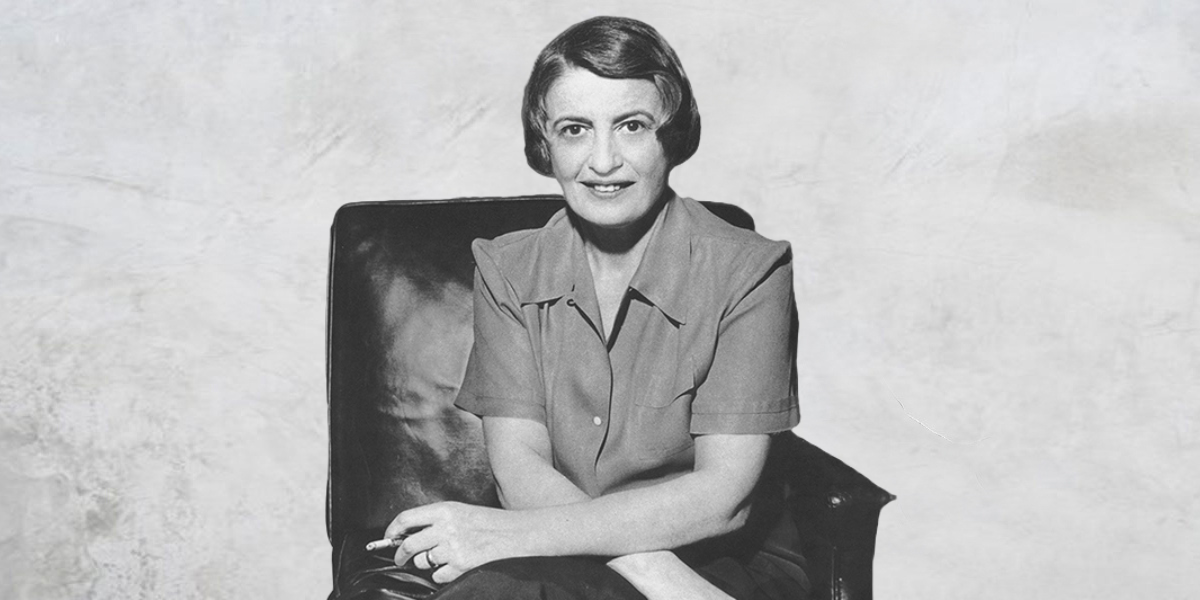
Big Thinker: Ayn Rand
Big thinkerSociety + CultureBusiness + Leadership
BY The Ethics Centre 7 OCT 2025
Ayn Rand (born Alissa Rosenbaum, 1905-1982) was a Russian-born American writer & philosopher best known for her work on Objectivism, a philosophy she called “the virtue of selfishness”.
From a young age, Rand proved to be gifted, and after teaching herself to read at age 6, she decided she wanted to be a fiction writer by age 9.
During her teenage years, she witnessed both the Kerensky Revolution in February of 1917, which saw Tsar Nicholas II removed from power, and the Bolshevik Revolution in October of 1917. The victory of the Communist party brought the confiscation of her father’s pharmacy, driving her family to near starvation and away from their home. These experiences likely laid the groundwork for her contempt for the idea of the collective good.
In 1924, Rand graduated from the University of Petrograd, studying history, literature and philosophy. She was approved for a visa to visit family in the US, and she decided to stay and pursue a career in play and fiction writing, using it as a medium to express her philosophical beliefs.
Objectivism
“My philosophy, in essence, is the concept of man as a heroic being, with his own happiness as the moral purpose of his life, with productive achievement as his noblest activity, and reason as his only absolute.” – Appendix of Atlas Shrugged
Rand developed her core philosophical idea of Objectivism, which maintains that there is no greater moral goal than achieving one’s happiness. To achieve this happiness, however, we are required to be rational and logical about the facts of reality, including the facts about our human nature and needs.
Objectivism has four pillars:
- Objective reality – there is a world that exists independent of how we each perceive it
- Direct realism – the only way we can make sense of this objective world is through logic and rationality
- Ethical egoism – an action is morally right if it promotes our own self-interest (rejecting the altruistic beliefs that we should act in the interest of other people)
- Capitalism – a political system that respects the individual rights and interests of the individual person, rather than a collective.
Given her beliefs on individualism and the morality of selfishness, Rand found that the only political system that was compatible was Laissez-Faire Capitalism. Protecting individual freedom with as little regulation and government interference would ensure that people can be rationally selfish.
A person subscribing to Objectivism will make decisions based on what is rational to them, not out of obligation to friends or family or their community. Rand believes that these people end up contributing more to the world around them, because they are more creative, learned, and can challenge the status quo.
Writing
She explored these concepts in her most well-known pieces of fiction: The Fountainhead, published in 1943, and Atlas Shrugged, published in 1957. The Fountainhead follows Howard Roark, an anti-establishment architect who refuses to conform to traditional styles and popular taste. She introduces the reader to the concept of “second-handedness”, which she defines living through others’ and their ideas, rather than through independent thought and reason.
The character Roark personifies Rand’s Objectivist ideals, of rational independence, productivity and integrity. Her magnum opus, Atlas Shrugged, builds on these ideas of rational, selfish, creative individuals as the “prime movers” of a society. Set in a dystopian America, where productivity, creativity, and entrepreneurship stagnate due to over-regulation and an “overly altruistic society”, the novel describes this as disincentivising ambitious, money-driven people.
Even though Atlas Shrugged quickly became a bestseller, its reception was controversial. It has tended to be applauded by conservatives, while dismissed as “silly,’ “rambling” and “philosophically flawed” by liberals.
Controversy
Ayn Rand remains a controversial figure, given her pro-capitalist, individual-centred definition of an ideal society. So much of how we understand ethics is around what we can do for other people and the societies we live in, using various frameworks to understand how we can maximise positive outcomes, or discern the best action. Objectivism turns this on its head, claiming that the best thing we can do for ourselves and the world is act within our own rational self-interest.
“Why do they always teach us that it’s easy and evil to do what we want and that we need discipline to restrain ourselves? It’s the hardest thing in the world–to do what we want. And it takes the greatest kind of courage. I mean, what we really want.”
Rand’s work remains hotly debated and contested, although today it is being read in a vastly different context. Tech billionaires and CEOs such as Peter Thiel and Steve Jobs are said to have used her philosophy as their “guiding stars,” and her work tends to gain traction during times of political and economic instability, such as during the 2008 financial crisis. Ultimately, whether embraced as inspiration or rejected as ideology, Rand’s legacy continues to grapple with the extent to which individual freedom drives a society forward.

BY The Ethics Centre
The Ethics Centre is a not-for-profit organisation developing innovative programs, services and experiences, designed to bring ethics to the centre of professional and personal life.
Ethics in your inbox.
Get the latest inspiration, intelligence, events & more.
By signing up you agree to our privacy policy
You might be interested in…
Opinion + Analysis
Business + Leadership, Relationships
Treating citizens as customers is a recipe for distrust
Opinion + Analysis
Society + Culture
The Ethics Centre Nominated for a UNAA Media Peace Award
Opinion + Analysis
Business + Leadership
Pulling the plug: an ethical decision for businesses as well as hospitals
Opinion + Analysis
Business + Leadership, Science + Technology
Is technology destroying your workplace culture?
Service for sale: Why privatising public services doesn’t work

Service for sale: Why privatising public services doesn’t work
Opinion + AnalysisHealth + WellbeingBusiness + Leadership
BY Dr Kathryn MacKay 1 OCT 2025
What do the recent Optus 000-incidents, childcare centre abuse allegations, and the Northern Beaches Hospital deaths have in common?
Each of these incidents plausibly resulted from the privatisation of public services, in which the government has systematically disinvested funds and withdrawn oversight.
On the 18th of September, Optus’ 000 service went down for the second time in two years. This time, the outage affected people in Western Australia, and as a result of not being able to get through to the 000 service, it appears that three people have died.
This highlights a more general issue that we see in Australia across a range of public services, including emergency, hospital, and childcare services. The government has sought to privatise important parts of the care economy that are badly suited to generating private profits, leading to moral and practical problems.
Privatisation of public services
Governments in Australia follow economic strategies that can be described as neoliberal. This means that they prefer limited government intervention and favour market solutions to match the value that people are willing to pay with the value that people want to charge for goods and services.
As a result, public goods and services like healthcare, energy, and telecommunications have been gradually sold off in Australia to private companies. This is because, firstly, it’s not considered within the government’s remit to provide them, and secondly, policy makers think the market will provide more efficient solutions for consumers than the government can.
We see then, for example, a proliferation of energy suppliers popping up, offering the most competitive rates they can for consumers against the real cost of energy production. And we see telecommunications companies, like Telstra and Optus, emerging to compete for consumers in the market of cellular and internet services.
So far, so good. In principle, these systems of competition should drive companies to provide the best possible services for the lowest competitive rates, which would mean real advantages for consumers. Indeed, many have argued that governments can’t provide similar advantages for consumers, given that they end up with no competition and no drive for technical improvements.
However, the picture in reality is not so rosy.
Public services: Some things just can’t be privatised
There’s a term in economics called ‘market failure’. This describes a situation where, for a few different possible reasons, the market fails to efficiently respond to supply and demand flows, affecting the nature of public goods and services.
A classic public good has two features: it is non-rival, and non-excludable. A non-rival good is one where one person’s use doesn’t deplete how much of that good is left for others – so we are not rivals because there is enough for everyone. A non-excludable good is one where my use of it doesn’t prevent anyone else from using it either. So, I can’t claim this good because I’m using it right now; it remains open to others to use.
Consider a jumper. This is a rival and excludable good. If I purchase a jumper out of a stock of jumpers, there are fewer jumpers for you and everyone else who wants one. The jumper is a rival good. When I buy the jumper and wear it, no one else can buy it or wear it; it is an excludable good.
Now, consider the 000 service. In theory, if you and I are both facing an emergency, we can both call 000 and get through to an operator. The 000 service is a non-rival, non-excludable good. It is not the sort of thing that anyone can deplete the stock of, nor can anyone exclude anyone else from using it.
Such goods and services present a problem for the market. Private companies have little reason to provide public goods or services, like roads, street lights, 000 services, clean air, or public health care. That’s because these sorts of goods don’t return them much of a profit. There is little or no reason that anyone would pay to use these services when they can’t be excluded from their use and their stock won’t be depleted. Of course, that has not stopped governments from trying to privatise these things anyway, as we see from toll roads, 000, and private care.
Public goods, private incentives
The primary moral problem that arises in the privatisation of public goods and services is two-fold. First, it puts the provision of important goods and services in the hands of companies whose interests directly oppose the nature of the goods to be provided. Second, people are made vulnerable to an unreliable system of private provision of public goods and services.
A private company’s main objective is to make the most possible profit for shareholders. Given that public goods will not make much of a profit, there is little incentive for a private company to give them attention. This means that essential goods and services, like the 000 service, are deprioritised in favour of those other services that will make the company more of a profit.
Further, people become vulnerable to unreliable service providers, as proper oversight and governance undercuts the profit of private companies. Any time a company has to pay for staff re-training, for revision of protocols, or firing and replacing an employee, they make their profits smaller. So, private companies have incentives to cut corners where they can, and oversight, governance, and quality control seem to be the most frequent things to go.
Most of the time, these cut corners go unnoticed. Until, that is, something goes wrong with the service and people get hurt, or worse.
So why does this system continue?
Successive governments have made the decision to privatise goods and services, making their public expenditures smaller and therefore also making it look like they are being more ‘responsible’ with tax revenues. It’s an attractive look for the neoliberal government, which emphasises how small and non-interventionist it is. But is it working for Australians?
It seems like the government’s quest for a smaller bottom line is at odds with the needs of Australian people. The stable provision of a 000 service, safe hospitals with appropriate oversight, and reliable childcare services with proper governance are all essential goods that Australians want, and which private companies consistently seem unable to provide.
It’s a moral – if not economic – imperative that Australian governments reverse course and begin to provide essential goods and services again. The 000 service, the childcare system, and hospitals provide only a few examples of where the government’s involvement in providing public services is very obviously missing. People are getting hurt, and people are dying, for the sake of private profits.

BY Dr Kathryn MacKay
Kathryn is a Senior Lecturer at Sydney Health Ethics, University of Sydney. Her background is in philosophy and bioethics, and her research involves examining issues of human flourishing at the intersection of ethics, feminist theory and political philosophy. Kathryn’s research is mainly focussed on developing a theory of virtue for public health ethics, and on the ethics of public health communication. Her book Public Health Virtue Ethics is forthcoming with Routledge.
Ethics in your inbox.
Get the latest inspiration, intelligence, events & more.
By signing up you agree to our privacy policy
You might be interested in…
LISTEN
Business + Leadership
Leading With Purpose
Explainer
Business + Leadership, Relationships
Ethics Explainer: Moral injury
Opinion + Analysis
Business + Leadership, Science + Technology
5 dangerous ideas: Talking dirty politics, disruptive behaviour and death
Opinion + Analysis
Politics + Human Rights, Health + Wellbeing, Society + Culture
I changed my mind about prisons
Women’s pain in pregnancy and beyond is often minimised

Women’s pain in pregnancy and beyond is often minimised
Opinion + AnalysisHealth + Wellbeing
BY Laura Kotevska 1 OCT 2025
Some recent discussions of pain relief during pregnancy frame the issue of paracetamol use as a maternal-foetal conflict, ignoring science, eroding trust in doctors, dismissing women’s pain, and limiting women’s autonomy. ‘Toughing it out’ is not the answer.
Last week, US president Donald Trump held a press conference announcing the results of his administration’s investigations into the root causes of autism. During the event, he shared several recommendations for the use of acetaminophen (paracetamol) in pregnancy, namely that women should not use it.
Medical experts have criticised the claims as dangerous and poorly informed, and researchers have shown that the recommendations are politicised interpretations of weaker medical studies. In Australia, the Royal Australian and New Zealand College of Obstetricians and Gynaecologists’ recommendations for paracetamol use in pregnancy remain unchanged.
While most expert attention has been paid to debunking the administration’s claims and communicating insights from our best scientific knowledge on the topic, less attention has been given to the tenor of the president’s announcement. How can the ethics of pregnancy help us to understand the rhetorical moves of this speech and how we treat women in pregnancy and beyond?
The ethics of pregnancy care
Trump’s recommendation to avoid paracetamol use in pregnancy is predicated on the assumption that doing so is harmful to the foetus. In this instance, it is recommended that a pregnant woman avoid pain relieving medication on the basis that it may cause autism. Putting aside the fact that there is little evidence of the harmful effects of paracetamol use in pregnancy, the White House press conference framed this issue as a maternal-foetal conflict – an instance of maternal interests (in pain or fever relief) conflicting with the interests of the foetus (of not developing autism). According to the White House, the maternal-foetal conflict should be resolved in favour of the foetus with the recommendation that paracetamol use be avoided in all but the most severe cases. In medicine and maternal decision making, prioritising the foetus is very common, but is hardly a foregone conclusion.
Yet in this instance, and in many other obstetric cases, the central conflict is not between the mother and foetus, but between the mother and others who believe they know better.
Here, the adversary is the White House, and the effect of their remarks is the erosion of trust between the pregnant patient and their physician. This is because the pregnant woman must now contend with information that may contradict her doctor’s advice. Such intervention is “counter-productive relative to the goal of promoting foetal health”, researchers Baylis, Rodgers and Young inform us, since this erosion of trust prevents doctors from providing “the education which would promote the birth of healthier babies”.
Secondly, the maternal-foetal conflict framing ignores the fact that the interests of mother and foetus are inextricably linked. Currently, many health experts are at pains to communicate that paracetamol is a safe for treating fevers and providing pain relief, and that sustained fevers in pregnancy can result in miscarriage, birth malformations and, later, still birth while untreated significant pain can also result in complications. Even in cases where there are certain risks to a foetus, withholding or delaying treatment can potentially lead to increased maternal and foetal morbidity and mortality. The White House’s rhetoric simplifies the often challenging or agonising decisions women and their physicians routinely make during pregnancy.
These examples show that protecting a woman’s health is oftentimes the strongest path to guaranteeing foetal and neonatal outcomes. More than this, recommendations that are laden with unscientific bias erode trust in physicians and limit a woman’s capacity to make informed choices, infringing upon women’s autonomy and potentially risking greater foetal harm.
Toughing it out
It was the experience of giving birth that led the author Anushay Hossain to reflect on the treatment of women’s pain. In The Pain Gap, she writes “Doctors still don’t always believe women when they describe their pain, or they dismiss women’s symptoms as being psychosomatic.” For Hussain, the concept of hysteria is useful to explaining a woman’s experience of the medical system. The common characterisation of women’s pain as hysterical, she writes, shifts blame and judgment onto women. The conversation becomes ‘is your pain real? Is it that bad? Why can’t you cope with it?’
This was the text and subtext of the White House press conference last week. On many occasions in his speech and responses to media outlets, Trump told women to ‘tough it out.’ And if you can’t tough it out? “You know, it’s easy for me to say tough it out, but sometimes in life where a lot of other things, you have to tough it out also. Don’t take Tylenol.” Once again, the blame for pain falls at the feet of women.
Setting aside the aforementioned evidence that women ‘toughing it out’ leads to worse outcomes for their foetuses, telling women to tolerate their pain is not only cruel, but also an example of medical misogyny. Medical misogyny describes the gendered ways patients experience healthcare, often marked by missed diagnoses, delayed treatments, and the dismissal or minimisation of symptoms, including but is not limited to pain. It is startlingly common in Australia with 2 out of 3 women reporting experiences of discrimination in healthcare. For non-white women, the experience is worse.
How should we respond?
To address these widespread issues, governments in Australia and the United Kingdom, among others, have established inquiries into women’s pain and reproductive health. More recently, the Sydney Morning Herald has collected patient testimonies that detail women’s experiences of medical misogyny, bringing about wider awareness of the issue and adding urgency to the call for systemic change.
At a time when many individuals and institutions are working to dismantle the gendered and racial barriers to accessing quality healthcare, dismissing women’s suffering and asking them to ‘tough it out’ reinforces a long history of medical misogyny that leaves women unheard, untreated and unwell.

BY Laura Kotevska
Laura Kotevska is Senior Lecturer in the Office of the Deputy Vice-Chancellor Education and Discipline of Philosophy at the University of Sydney.
Ethics in your inbox.
Get the latest inspiration, intelligence, events & more.
By signing up you agree to our privacy policy
You might be interested in…
Opinion + Analysis
Climate + Environment, Health + Wellbeing, Relationships
The dilemma of ethical consumption: how much are your ethics worth to you?
Opinion + Analysis
Business + Leadership, Health + Wellbeing, Relationships
Ending workplace bullying demands courage
Opinion + Analysis
Health + Wellbeing, Relationships
Rationing life: COVID-19 triage and end of life care
Opinion + Analysis
Climate + Environment, Health + Wellbeing
How can we travel more ethically?
Free speech is not enough to have a good conversation

Free speech is not enough to have a good conversation
Opinion + AnalysisPolitics + Human RightsSociety + Culture
BY Tim Dean 23 SEP 2025
When I facilitate a Circle of Chairs conversation at The Ethics Centre, I always pause before starting and remind myself that I’m about to enter a potentially dangerous space. There are few domains that are as hotly contested and emotionally charged as ethics.
In this space, people might have their deepest values questioned, their most cherished views challenged, and they are likely to encounter people who hold radically different moral and political beliefs to their own.
Yet, after stepping into many Circles, I can’t think of a single time when I haven’t stepped out having witnessed a rich, deep and often challenging conversation that has left everyone feeling closer together as humans, even if they remain far apart in their views.
This is because we don’t just encourage any kind of speech in a Circle of Chairs. We do acknowledge the importance of free speech, not least because it’s our best means of challenging conventional wisdom, correcting errors and seeking the truth. But we also recognise that just protecting free speech sets a perilously low bar for the quality of discourse.
Now seems like a good time to talk about how we talk to each other. Especially so in the wake of conservative commentator, Charlie Kirk’s, assassination in the United States. That horrific event, coupled with two late night talk show hosts being taken off air in recent months, ostensibly due to comments made that have offended the Trump administration and its ideological allies, has sparked numerous conversations about the nature of good faith debate and the limits of free speech.
But if we just limit ourselves to removing speech that is directly harmful, hateful or incites violence, it still leaves a lot of room for speech that can be deceptive, offensive, divisive and dehumanising. Which is why at The Ethics Centre, we treat free speech as a baseline and add other norms on top that serve to promote constructive discourse.
These norms enable people to engage with views that are vastly different to their own – including arguing for their own perspectives and challenging those they believe are wrong – without things slipping into vitriol or worse.
I wonder if these norms might be useful when it comes to think about how we ought to speak to each other. And I stress: these are norms, not laws. They are expectations around how to behave. They’re not intended to be used to silence or punish those who fail to conform to them. They are offered as a guide for those who want to break out of the cycles of polarising and vilifying speech that we see all too often today.
Respect
The first norm is in some ways the simplest, but also the most important: respect. It states that we should always recognise others’ inherent humanity, no matter how obtuse or perverse their beliefs.
What this means is that we might choose not to say something if we think doing so will disrespect or injure their dignity as a person. We already do this in many domains of our lives. If someone has just lost a loved one, we might refrain from criticising the deceased, even if we have a genuine grievance. Likewise, we might choose not to say something we believe is true if it might dehumanise or objectify someone. As they say, “honesty without compassion is cruelty”.
This doesn’t mean we shouldn’t strongly challenge others’ beliefs, especially if we feel they are false or harmful. Sometimes, we should do so even if it might offend them. But there’s a pragmatic element: without mutual respect, our challenges will likely fall on deaf ears, triggering defensiveness rather than encouraging openness.
Showing respect to someone you disagree with is a powerful tool to build the kind of trust that is necessary to have them actually listen to what you have to say. And the more trust and respect you build, the less chance you have of being seen to be disrespectful, and the more frank you can afford to be when you speak.
Good faith
The second norm is to always speak in good faith. This has two elements. The first is that we speak with good intention, with the aim to understand, find the truth and make the world a better place, rather than speaking to intimidate, self-aggrandise or hide an insecurity. The second element is that we speak with intellectual honesty, acknowledging our fallibility and being open to the possibility of being wrong.
We all know it’s all too easy to slip into bad faith, especially when emotions run high or we feel threatened. We might utter a barbed comment, or defend a position we don’t really understand, or we dig in our heels so we don’t look dumb. We also know what it’s like to encounter bad faith, like when you dismantle someone’s argument only to discover they haven’t changed their mind. It’s infuriating, and it can rapidly devolve a conversation into mutual bad faith attacks. You know, like what we see on social media.
Charity
The third norm is charity, which is just the flip side of good faith. Charity means we assume good faith on behalf of the person we’re speaking to rather than assuming the worst about them and their beliefs. It means filling in the blanks with the best possible version of their argument instead of jumping to attack the weakest possible version.
Charity also means giving people an on-ramp back to good faith if we do discover they are speaking in bad faith. Rather than writing them off, we try to show respect and find some mote of common ground – a shared value or belief – and build on that until we can better understand where we diverge, and talk about that.
These norms don’t guarantee all speech will be constructive. They’re not always easy to implement – especially in the unregulated wilderness of social media. But see them as being more aspirational, a kind of soft expectation that we place on ourselves and hope to demonstrate to others through the way we speak.
When we’re mindful of them, they can change conversations. I’ve seen it happen many times. I’ve seen political opponents really listen to each other and acknowledge that the other has a point. I’ve seen a climate denier and an environmental activist hug after a long conversation. I’ve seen an anti-vaxxer thank a science journalist for disagreeing without calling them names. It won’t always go like that. But in a world where we’re thrust into proximity with those we disagree with, where the threat of political violence will always hover in the wings, ready to take the stage when speech fails, I’m convinced these three norms can make a difference.

BY Tim Dean
Dr Tim Dean is a public philosopher, speaker and writer. He is Philosopher in Residence and Manos Chair in Ethics at The Ethics Centre.
Ethics in your inbox.
Get the latest inspiration, intelligence, events & more.
By signing up you agree to our privacy policy
You might be interested in…
Opinion + Analysis
Climate + Environment, Politics + Human Rights
Is it time to curb immigration in Australia?
Opinion + Analysis
Science + Technology, Business + Leadership, Society + Culture
AI might pose a risk to humanity, but it could also transform it
Opinion + Analysis
Society + Culture
Schools of thought: What is education for?
Opinion + Analysis
Society + Culture










